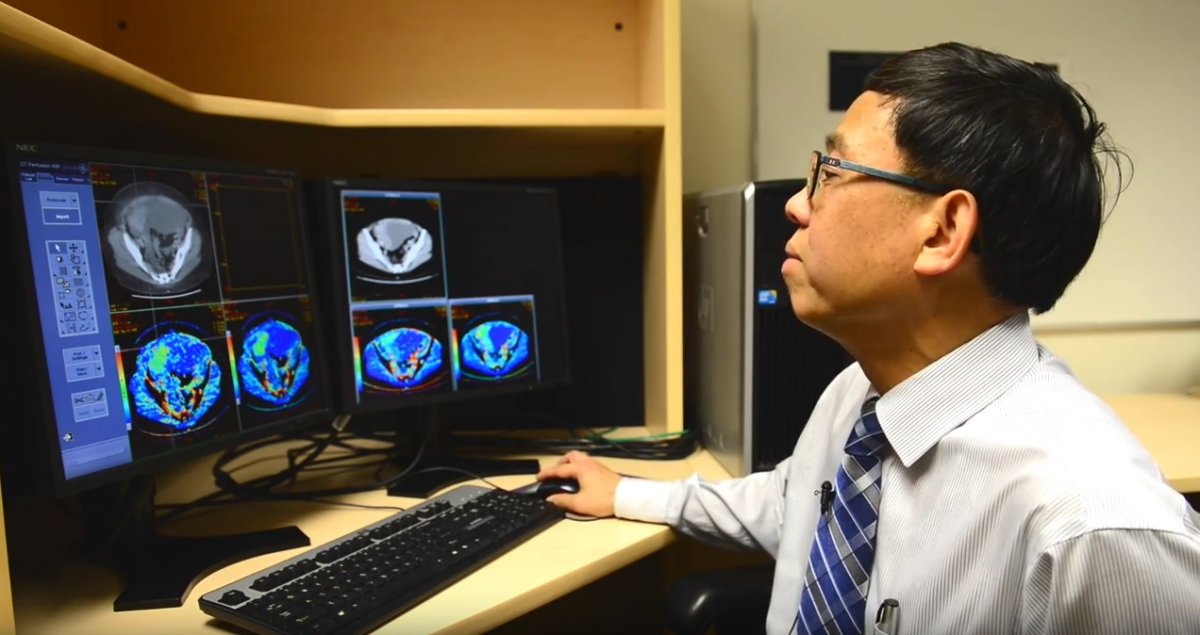Researchers at Western University and Lawson Health Research Institute say a simple CT scanning procedure can show whether patients are responding to treatment for advanced ovarian cancer.

With help from his team at Robart Research Institute, Western University professor Ting-Yim Lee developed the CT perfusion technology, which measures blood flow and blood volume to ovarian cancer tumours.
“We’re looking at whether — before and after treatment — there is an increase in the blood flow in the ovarian cancer, or if there is a decrease,” Lee told AM980. He’s also a scientist at Lawson Health Research Institute and a medical physicist at St. Joseph’s Health Care London.
READ MORE: Western University study shows promise for earlier dementia diagnoses
This information allows an oncologist to determine whether a treatment plan is working, and allows them to change course if it isn’t. It would also spare a patient from unnecessary adverse effects.
The technology is already used globally to assess blood flow to the brain on patients who’ve had a stroke, and it’s easily implemented onto an existing CT scanner.
READ MORE: Western University students make their mark on Mars
While the results of the study — published in the journal Clinical Cancer Research — are promising, Lee said more research is necessary before the practice becomes a guideline.
“In order to gather more evidence so that it becomes a Level 1 evidence … you need other similarly designed trials to produce a similar effect.”
Lee says the technology has been in development in his lab for more than a decade.
The multi-centre clinical trial was funded by the US National Cancer Institute and took place at 19 centres in the United States.




Comments